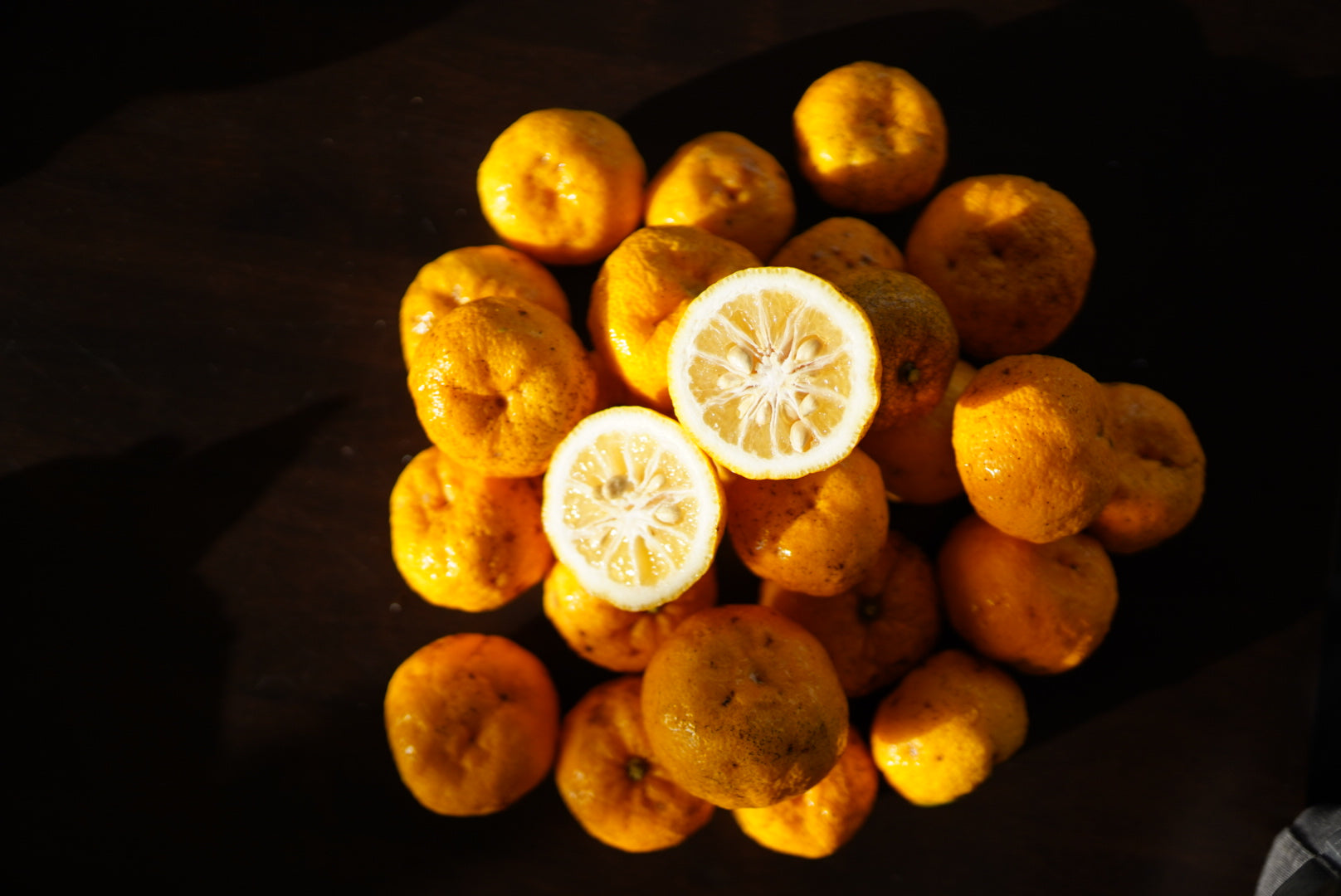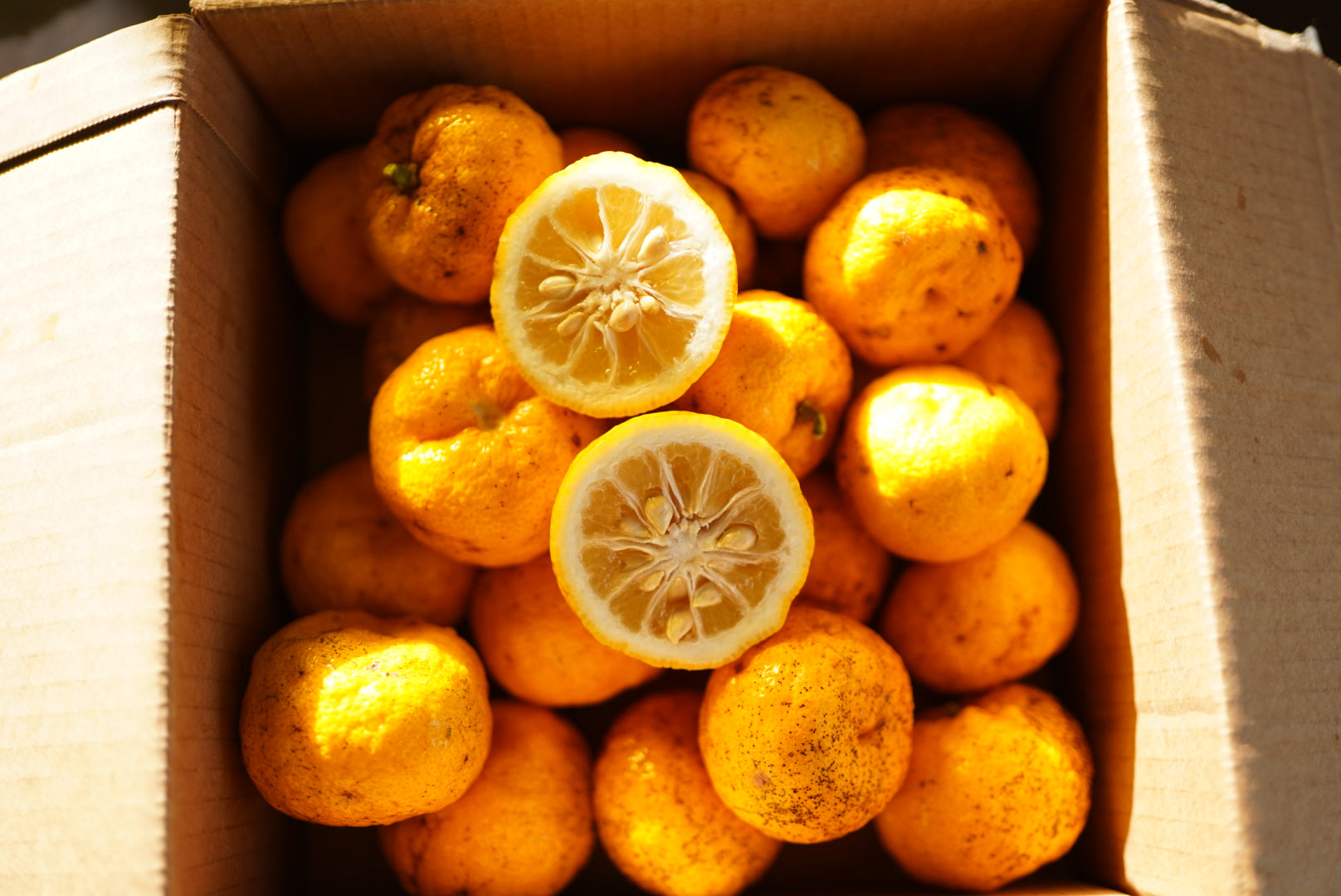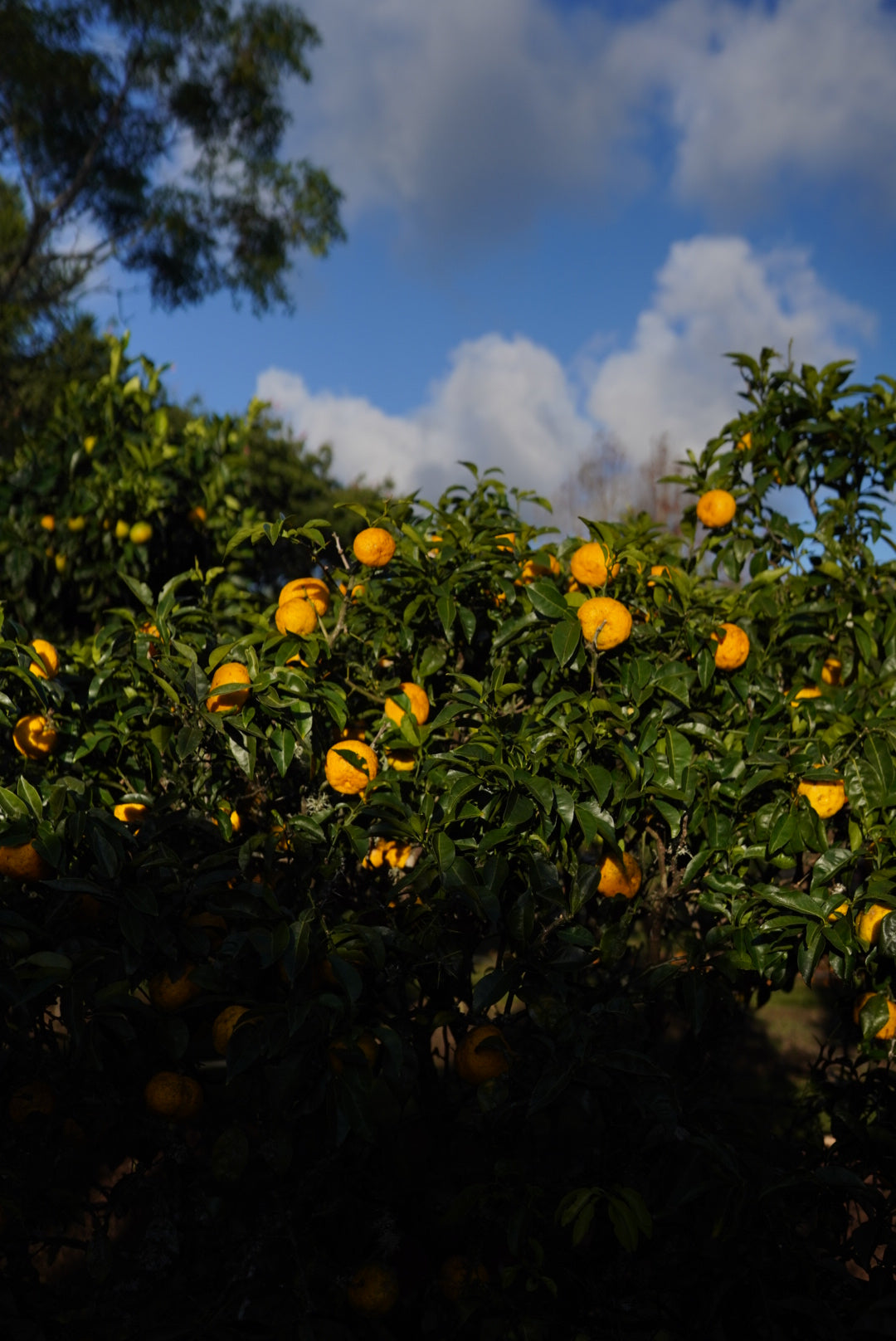Yuzu
- Regular price
-
$49.99 - Regular price
-
- Sale price
-
$49.99
Couldn't load pickup availability
The Yuzu, with botanical name Citrus junos and originating from Japan, is a citrus fruit and plant belonging to the Rutaceae family of East Asian origin. Its cultivation has mainly been in East Asia, but recently it has also been grown in New Zealand, Australia, Spain, Italy, and France. This fruit is believed to be an F1 hybrid of the mangshanyeju subspecies of mandarin orange and the ichang papeda that originated in central China.
The Yuzu fruit, known for its strong aroma, is typically shaped like a small grapefruit with uneven skin that can be either yellow or green depending on the degree of ripeness. It ranges in size from 5.5 to 7.5 cm (2+1⁄8 to 3 in) in diameter, but can be as large as a regular grapefruit, reaching up to 10 cm (4 in) or larger.
The Yuzu plant grows into an upright shrub or small tree, which is commonly characterized by many large thorns. Its leaves have a large, leaf-like petiole that is similar to the related makrut lime and ichang papeda, and they emit a strong scent.
Although the Yuzu resembles the sudachi (Citrus sudachi) in many aspects, it eventually ripens to an orange color, and there are subtle differences in the flavor of the fruit. The sudachi, a Japanese citrus from Tokushima Prefecture, is a yuzu-mandarin orange cross.
Rootstock options:
Trifoliata (Standard) - Tree will grow to around 2.5-3 meters high, and 2 meters wide. Best option if you have plenty of space, and want a full sized tree.
Flying Dragon (Dwarf) - Tree will grow to around 1.8 meters high, and 1.8 meters wide. Best option for growing in a container/pot, small garden, or for those who like a uniform, manicured citrus tree look.
The fruit produced on both rootstocks is exactly the same, as the grafted scion is from the same mother plant. These different rootstocks mainly control the tree size, but also both have fantastic pest, disease and cold resistance, and are the best for helping you grow citrus trees in New Zealand's climate.
Citrus Care Tips
|
Watering: Citrus plants should be watered deeply once or twice a week, depending on the soil and weather conditions. Water the plant until the soil is evenly moist, but not waterlogged. Avoid letting the soil dry out completely, as this can cause the leaves to yellow and drop. |
|
Fertilising: Feed citrus plants with a balanced fertiliser (such as a 10-10-10 formula) every month during the growing season (spring and summer). Alternatively, you can use a slow-release fertiliser or a liquid fertiliser. Citrus plants also benefit from the addition of compost or well-rotted manure to the soil. |
|
Pruning: Prune citrus plants to remove dead or damaged branches, and to shape the plant as desired. Pruning also helps to encourage new growth and keep the plant healthy. Use clean, sharp pruning tools to make precise cuts. |
|
Pest control: Keep an eye out for pests such as aphids, mealybugs, and mites, which can damage citrus plants. These pests can be controlled through the use of natural methods such as introducing beneficial insects, or by using pesticides as a last resort |
|
Sunlight: Citrus plants need plenty of sunlight to grow and produce fruit. In most cases, a location with 6-8 hours of direct sunlight per day is ideal. |
|
Soil: Citrus plants prefer well-draining, slightly acidic soil with a pH of 6.0-6.5. If your soil is not suitable, you can improve it by adding compost or peat moss to increase the organic matter content. |
|
Pollination: Citrus plants are self-pollinating, which means that they do not need to be pollinated by another plant in order to produce fruit. However, the presence of bees and other pollinators can help to improve the quality and quantity of fruit. To attract pollinators, consider planting flowering plants near your citrus trees. |
|
Temperature: Citrus plants thrive in warm temperatures and can tolerate a wide range of temperatures, as long as they are protected from frost. |
|
Mulching: Mulch around the base of your citrus plant to help retain moisture and suppress weeds. Use a mulch that is well-draining, such as wood chips or pine needles. Avoid using a mulch that is too thick, as this can prevent water and air from reaching the roots. |
|
Pruning for fruit production: To encourage fruit production, prune your citrus plant to allow for good air circulation and sunlight penetration. Remove any branches that are crossing or rubbing against each other, as well as any branches that are diseased or damaged. |
| Pesticide use: If you need to use pesticides on your citrus plant, be sure to follow the instructions on the label carefully. Wear protective clothing, such as gloves and a mask, to avoid exposure. Avoid applying pesticides when pollinators are present, and wash your hands thoroughly after handling pesticides. |










